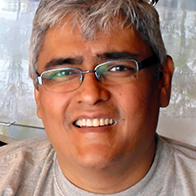I don't know if you know, but a most interesting international forum on world peace was held right here in Kuala Lumpur at the Putra World Trade Centre.
And although it has been a month since it transpired, participants of the event are still eagerly talking about it.
There were about 800 of them at the two-day session.
Called “Criminalise War; Energise Peace”, the event was attended by Tun Dr Mahathir Mohamad who was also its founder and keynote speaker.
Other speeches were presented by internationally renowned personalities including Hans Sponeck, a former assistant secretary-general of the United Nations and UN humanitarian coordinator for Iraq.
What made the forum even more interesting was its focus on children and the psychological impact that war had on them – an invisible trauma.
I asked consultant psychiatrist Datuk Dr Andrew Mohanraj, who attended the sessions, to tell me more.
(Dr Mohanraj was moderator for a session on "The Scourge of the Vietnam War" which was held on the second day.)
He began by pointing out some compelling statistics highlighted in the forum.
The Trauma & Mental Health report released in 2013 by York University in Canada reveals that in the past decade, 18 million children have been and are being raised in the chaos of war.
Out of them, over two million children have been killed.
Six million were disabled, 20 million made homeless and more than one million separated from their parents.
"Many children watched in horror as their homes and schools were destroyed, and have even witnessed the death of their loved ones," said Dr Mohanraj who is also associate professor of psychiatry at Perdana University Graduate School of Medicine in Serdang, Selangor.
"And many were forced to tell lies in situations where they would have themselves been killed," he added.
Dr Mohanraj said that the psychological damage to the children made it difficult for them to function.
They have serious problems being successful in school as well as in their relationships with their peers and family.
Children who spent more years being exposed to violent conflict struggled to recover from years of compounding trauma. They revealed pervasive feelings of depression, anxiety and hopelessness. Other emotions include grief, resentment and anger.
According to Dr Mohanraj, they display poor coping skills when they become adults and have difficulty tackling daily situations.
"As young adults, they show a propensity to abuse alcohol and illegal substances.
"Their personalities too can be impaired in the sense that they are unable to form trusting relationships. This results in irritability over trivial matters."
Persons with such backgrounds constantly live in fear. They possess low self-esteem and bear hatred or entertain thoughts of revenge, and have a tendency towards violence.
With conflicts and resulting displacements, there tends to be an increase in instances of child abuse and neglect of children.
Sanctions imposed by bigger nations over “recalcitrant” countries causes food insecurity and lack of medical supplies which only significantly make the situation worse for these children.
Lack of nutrients results in generations of stunted and malnourished children.
"One need not kill or maim children in order to achieve the destruction of a people.
"Slowly, starving out children can quite easily achieve the same end. Even children who are yet to be born may suffer.
"Radioactive materials in bombs may cause birth defects and abnormalities for years to come. Toxins and teratogens (agents in weaponry that can disturb the development of an embryo or foetus) have resulted in birth defects and premature births."
Dr Andrew said that despite media attention, international outcry and condemnation, children continue to be the silent victims of wars that are declared with impunity.
Which is why the second day’s session entitled, “Engaging the Young to Criminalise War and Energise Peace”, officiated by Deputy Prime Minister Tan Sri Muhyiddin Yassin, was particularly refreshing.
It witnessed the active participation of children from premier schools in the country and university students, including students who came from abroad.
“The passion displayed by students in opposing wars was most inspiring to the adults present.
“In straightforward and non-sugar coated language they expressed their anguish over the futility, and indeed, 'stupidity of wars’,” said Dr Mohanraj.
One of the students kept the audience spellbound when she recited her poem entitled “Three Birds”.
It was an ode to those who went missing or had perished in the three Malaysia-related air tragedies.
One of the stanzas referred to the ill-fated flight MH17 in which she lamented:
“The second (bird) died of murder,
with wings rent asunder,
by an unknown hunter;
Was it downed by enemy fire,
or was it just a friendly blunder?”
With noteworthy forums like these that encourage the vibrant participation and thoughts of our young people and children – as well as those around the world – clearly there is still hope for our children and that of those the world over, said Dr Mohanraj.
"It proved that only a child can truly understand the pain of war on another child when it seems invisible to the adults of this world.
"By our silence, we adults implicitly allow wars to undermine the very foundations of our children’s lives, maiming their bodies and stealing their spirit," he said.
I can't agree more. – May 11, 2015.
* This is the personal opinion of the writer or publication and does not necessarily represent the views of The Malaysian Insider.


Comments
Please refrain from nicknames or comments of a racist, sexist, personal, vulgar or derogatory nature, or you may risk being blocked from commenting in our website. We encourage commenters to use their real names as their username. As comments are moderated, they may not appear immediately or even on the same day you posted them. We also reserve the right to delete off-topic comments